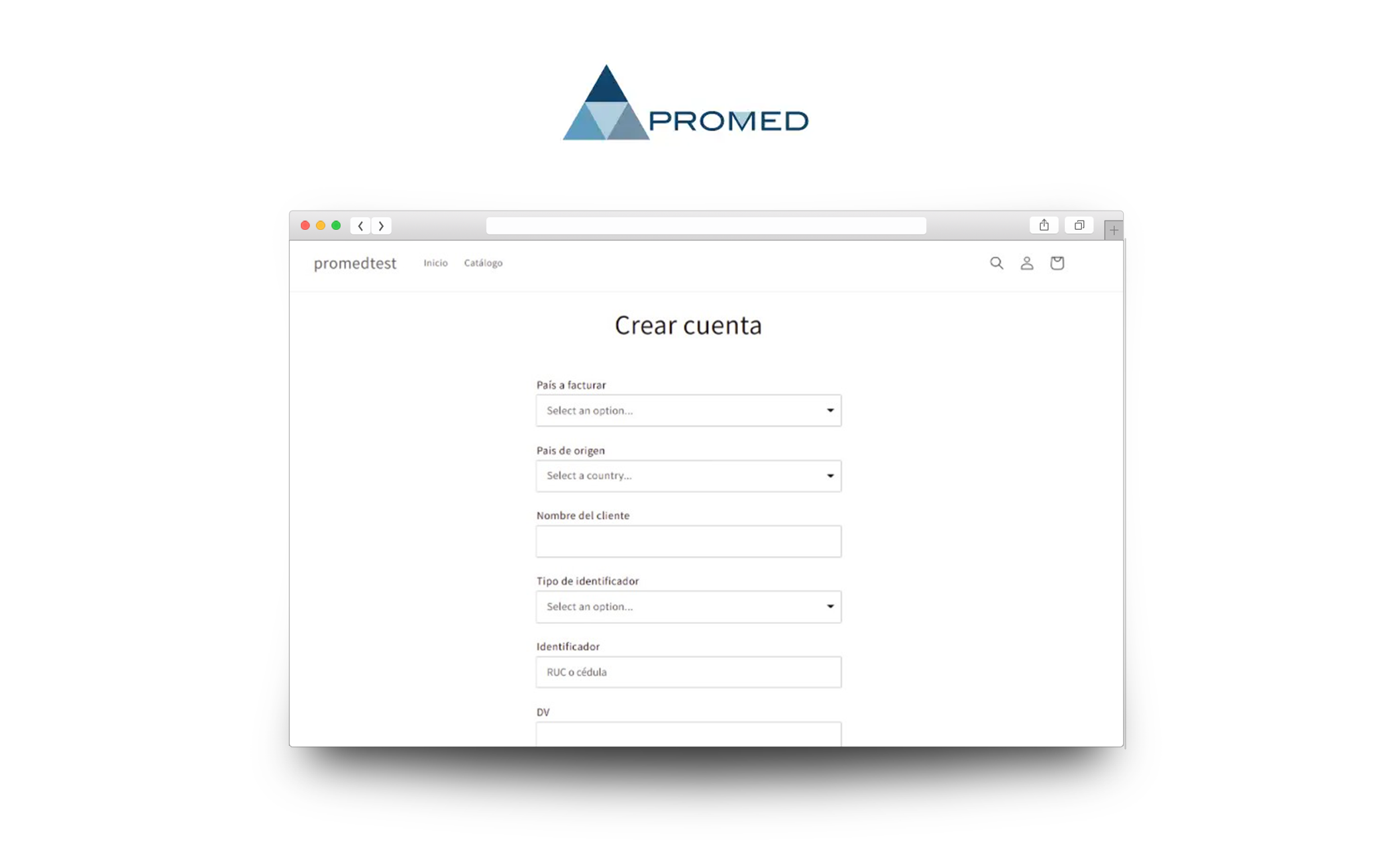Challenge
The main problem that our client presented was to take the product catalog to digital sales channels, in this case specifically they wanted to take their store to Shopify and expose the products so that people could buy through that channel, and take it to different countries where they are in the region.
They approached Rootstack looking for a solution that would allow the integration of the Shopify eCommerce store with the ERP.
Our solution
Rootstack's team of experts used a service of Lambda Functions, of functions located in the AWS cloud. These functions worked as microservices, for example, one created the products from the ERP to Shopify, and another allowed to create an order from Shopify to the ERP, update product inventory, and update properties such as the expiration date of a batch or the number of batches of a product.
In addition, the process of managing purchases through credit was created for Promed clients who handle these conditions.

Thus offers a channel where the company's customers can buy their products or place their purchase orders, streamlining administrative processes. What we mainly solved was the integration of the Shopify e-commerce site with the company's ERP. An ERP is a business management resource, all the data that is needed at the administrative level, so they needed to integrate this data with the e-commerce store.
The integrations with the ERP were worked on by the client since in an integration process we talk about communications between systems: one puts one part and the other puts the function that is going to interpret the other part, then the information that is transferred between both systems must be consistent and this is what is sought with integrations.

To achieve this, first, an analysis of function requirements at the business level was carried out. In the case our client, the management of credit clients was important, then that need was transformed into a technical requirement and scalable functions were developed to cover those requirements.
Scalable services
The advantage of scalable web services, such as the one applied in the e-commerce application, is that if today, for example, an inventory is updated, it can be scaled and say, "Now you will update the inventory and additionally you are going to update the warehouses, and additionally later it will update the warehouses” and so on.
Technologies
For the administration of the e-commerce site, Shopify and external Shopify applications were used, such as Customer Fields, which allow the user to manage specific processes within Shopify.
Another of the technologies used by the Rootstack team was that of Amazon Web Services, which is basically where all the functions that were developed are housed, that is, the microservices that are in the cloud, with each one having a specific integration function.
Shopify is one of the most used e-commerce platforms in the world and a report published on their website indicated that just two years ago, sales through online purchases only reached 17.8%. But in 2022, that figure is expected to rise to 21%, growing to 24.5% in 2025.
Amazon Web Services, as the name suggests, offers various cloud services to businesses, and precisely with this solution, it offers easy, scalable, and serverless data integration.

